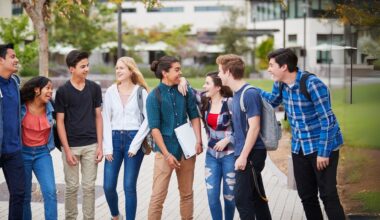Social Emotional Learning (SEL) is about more than just managing emotions in the classroom. At its heart is one of the most powerful life skills we can teach ourselves and others: self-awareness.
In this guide, we’ll explore how self-awareness shapes our emotional intelligence, enhances our relationships, supports personal growth, and sets the stage for academic and career success. Whether you’re a student, teacher, or school leader, self-awareness is the foundation for growth and resilience.
What Is Self-Awareness?
Self-awareness is the ability to recognize your emotions, thoughts, and behaviors—and understand how they affect you and those around you. It’s a skill anyone can develop, and it’s essential to the SEL framework. When we’re self-aware, we can:
- Recognize what we’re feeling and why
- Reflect on our behavior and its impact
- Align our choices with our values
- Set meaningful goals and learn from feedback
It’s not about perfection. It’s about progress—knowing where we stand so we can move forward with intention.
Internal vs. External Self-Awareness
Researchers define self-awareness in two categories:
- Internal self-awareness: understanding your values, emotions, and impact on others
- External self-awareness: understanding how others see you and responding with empathy
You might find yourself in one of these common patterns:
- The Introspector (high internal, low external): knows themselves well but struggles to accept feedback
- The Seeker (low internal, low external): still discovering who they are and how they affect others
- The Pleaser (low internal, high external): highly aware of others’ views but unsure of their own beliefs
- The Aware (high internal, high external): open, balanced, and emotionally intelligent
Where do you fit in? Becoming more aware of yourself—and how others see you—can help you grow in both personal and professional settings.
The Link Between Self-Awareness and Emotional Intelligence
Emotional intelligence (EQ) begins with self-awareness. You can’t manage what you don’t notice. If you can identify when you’re anxious, stressed, or frustrated, you can respond with intention rather than react on impulse.
Think of self-awareness as the compass, and emotional intelligence as the map. Together, they help you navigate your emotions, relationships, and challenges with confidence.
Being self-aware makes it easier to:
- Resolve conflict calmly
- Show empathy in tough conversations
- Respond to criticism without becoming defensive
- Make choices that align with your long-term goals
In short, self-awareness powers your emotional intelligence—and strong emotional intelligence supports everything from leadership to learning.
Self-Awareness and Personal Growth
Self-awareness is a cornerstone of personal development. It allows us to recognize our patterns, understand our motivations, and see where we need to grow.
When we know ourselves, we can:
- Set goals that reflect our values
- Accept responsibility for mistakes
- Understand what triggers negative behavior
- Make more thoughtful, intentional choices
Self-aware individuals are more adaptable, more mindful, and often more successful in the long run. In fact, a Harvard Business Review study found that leaders with strong self-awareness are more effective, make better decisions, and create healthier workplace cultures.
Building Better Relationships Through Self-Awareness
Relationships thrive when people understand themselves and each other. Self-awareness strengthens every aspect of communication, from resolving arguments to expressing appreciation.
Here’s how self-awareness supports strong relationships:
- Understanding yourself: You can identify your needs and communicate them clearly.
- Communicating with empathy: You’re better able to listen and respond rather than react emotionally.
- Breaking negative cycles: You notice recurring conflicts and make changes to avoid them.
- Earning trust: You follow through on promises and own up to mistakes.
- Accepting others: When you accept yourself, it’s easier to embrace others without judgment.
By practicing self-awareness, we can form deeper, more honest, and more respectful connections.
Cultivating Self-Awareness in Daily Life
Self-awareness isn’t a one-time achievement—it’s a habit. Here are a few simple ways to strengthen your self-awareness each day:
1. Practice Mindfulness
Mindfulness helps you observe your thoughts and feelings in real time. Just a few minutes a day can sharpen your awareness and reduce stress.
2. Journal Regularly
Writing about your experiences, choices, and emotions can help you uncover patterns and understand your reactions.
3. Seek Feedback
Ask trusted friends or colleagues how they see you. Honest feedback can reveal blind spots and help you grow.
4. Reflect on Your Day
Take five minutes before bed to ask: What went well today? What could I have handled better?
5. Try New Experiences
Getting out of your comfort zone helps you learn what drives you, what scares you, and where you shine.
As Tasha Eurich suggests in her TEDx talk, asking “what” instead of “why” can lead to deeper insights. For example, instead of asking “Why am I upset?” try asking “What triggered this feeling, and what can I learn from it?”
Self-Awareness in Leadership and Learning
Self-awareness is a superpower for students, teachers, and leaders alike.
- Students learn to recognize their strengths and work on their weaknesses. They become more motivated and more responsible for their learning.
- Teachers reflect on their teaching practices, improve classroom dynamics, and model healthy emotional habits.
- School leaders who are self-aware lead with empathy, build trust, and create stronger school communities.
In all these roles, self-awareness fuels Social Emotional Learning and supports long-term success.
Why Self-Awareness Matters in Social Emotional Learning
In SEL, self-awareness is the foundation of the entire framework. Without it, we can’t effectively self-manage, show empathy, or make responsible decisions.
By developing self-awareness, students:
- Build resilience and confidence
- Improve behavior and focus
- Develop stronger friendships
- Experience less anxiety and more satisfaction
Teachers who emphasize self-awareness in the classroom are helping students build skills that last a lifetime. It’s one of the most powerful investments a school can make in both student wellbeing and academic achievement.
Final Thoughts: Know Thyself
Despite all our advances, many of us still struggle to understand our emotions or reflect on our choices. But that doesn’t have to be the case.
Self-awareness helps us turn the light on—to see what’s really going on inside us, to make better choices, and to connect with others more authentically. It’s a journey that never ends, but each step brings us closer to living a life that’s honest, mindful, and fulfilling.
So ask yourself: Are you ready to look inward? Are you ready to know yourself—and grow?



